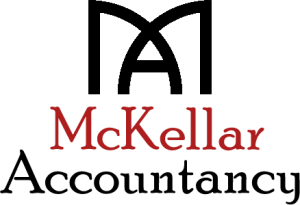In this month’s Enews we look at HMRC’s reversal of its helpline closures and the reaction to the Spring Budget. We also update you on the latest guidance on R&D relief and the latest on the UK economy. With more on the fight against fraud and analysis of the National Minimum Wage, there is a lot to update you on.
Relief at HMRC’s reversal of helpline closures
HMRC’s decision to halt its plans to restrict taxpayer helplines and direct people to online services instead has been met with relief by the Federation of Small Businesses (FSB).
The tax authority had announced that it was closing its self assessment helpline for six months every year. It was also restricting the opening times of its VAT helpline and the usage of its PAYE helpline.
HMRC says it is halting these plans ‘in response to the feedback while it engages with its stakeholders about how to ensure all taxpayers’ needs’.
The FSB says that more investment in digital and telephone is needed – not a reduction in service.
Tina McKenzie, Policy Chair, FSB said:
‘Small businesses will definitely be relieved that the drastic reduction in HMRC’s helpline opening hours has been paused. We are very glad that HMRC has listened to the chorus of dismay which greeted its initial announcement.
‘While online services are a key part of the communications mix for the tax authority, sometimes there’s just no substitute for a real human on the end of a phone line who can listen, engage, and help untangle issues.
‘Before phone line cuts are considered, HMRC needs to build capacity in its digital services, as if those are improved – with real people online to offer help instead of chatbots – many small firms like to interact with the tax authority this way, as it can be more flexible and available out of hours.’
Internet link: GOV.UK FSB website
Jeremy Hunt cuts NICs again in the Spring Budget
The Chancellor made further changes to National Insurance contributions (NICs) following the cuts made in the Autumn Statement 2023. The rates for NICs will be cut by two percentage points for both employees and the self-employed from 6 April 2024.
This will see Class 1 employee NICs reduced from 10% to 8% from 6 April 2024, down from 12% at the end of last year. Meanwhile, Class 4 self-employed NICs are cut from 9% to 6% from 6 April 2024.
Mr Hunt made a number of other changes that will relieve the tax burden on businesses, families and motorists. He cut the higher rate of capital gains tax on residential property disposals from 28% to 24%. The lower rate will remain at 18% for any gains that fall within an individual’s basic rate band.
The threshold for VAT registration will be lifted from £85,000 to £90,000 from 1 April 2024. According to the government, this will mean 28,000 businesses will no longer be VAT registered in 2024/25.
The Budget saw the creation of a new ISA that will allow people to invest in UK-focused assets. The new UK ISA creates an allowance of £5,000. This will be in addition to the £20,000 that can be subscribed into an ISA. The government will consult on the details.
The Chancellor made his cut to NICs possible with a series of tax raising measures. These include the abolition of the Furnished Holiday Lettings regime and Multiple Dwellings Relief, alongside a new duty on vaping and an increase in tobacco duty.
The UK’s tax rules for non-UK domiciled individuals will be replaced with a residence-based regime that Mr Hunt says will raise £2.7 billion in revenue.
This new regime will commence on 6 April 2025 and applies UK-wide. Individuals who opt in to the new regime will be exempt from UK tax on foreign income and gains for their first four years of residence in the UK, while the government will make transitional arrangements for existing non-doms.
Internet link: HM Treasury press release
Business groups say challenges remain despite encouraging Budget
The UK’s business groups warned that challenges remain despite the Chancellor delivering an encouraging Spring Budget.
The British Chambers of Commerce (BCC) said that while the cut to NICs would ‘boost jobs’it had failed to ‘shift the dial’ for business.
Shevaun Haviland, Director General of the BCC, said:
‘Following the Autumn Statement this Budget was always set to deliver less for business, although changes to national insurance will provide some momentum.
‘However, beyond this there were no major announcements to help shift the dial on conditions for business. Business confidence is improving but the coming months will remain challenging for many companies. It is vital that the economy remains front andcentre of the campaign to come.’
The Institute of Directors (IoD) branded the Spring Budget ‘unremarkable’ for businesses.
Roger Barker, Director of Policy at the IoD, said:
‘First and foremost, business was hoping for a Budget that would maintain a stable and credible policy framework for business. The Chancellor largely delivered that. However, beyond that, there was little in the announcements that can be regarded as a game-changer for business.’
Meanwhile, the Association of Independent Professionals and the Self-Employed (IPSE) said the Chancellor had ‘failed to address the substantive issues holding the self-employed back’.
Andy Chamberlain, Director of Policy at IPSE, said:
‘The self-employed make an enormous contribution to our economy and society, but it could be even greater if the government were to grasp the nettle of IR35 and address the forthcoming impact of Making Tax Digital for Self Assessment.’
Internet link: BCC website IoDwebsite IPSE website
New HMRC R&D tax relief guidance ‘could be clearer’, says ICAEW
New guidance from HMRC on Research and Development (R&D) tax relief ‘could be clearer’, according to the Institute of Chartered Accountants in England and Wales (ICAEW).
HMRC’s draft guidance covers the restriction applying for contractor payments and payments for externally provided workers (EPWs) where the R&D activity takes place overseas; and the new rules for contracted-out R&D.
The ICAEW’s Tax Faculty believes that additional clarity would be helpful on a few of the new points.
It also said that the guidance ‘does not fully address the implications of an arrangement between the customer and the contractor that is governed by multiple contracts’. The Institute has called for the guidance to explain how to determine if the contractor took R&D into consideration at the time of the contract when multiple contract dates exist.
The ICAEW also called for clarity on the requirement that the carrying-on of R&D needs to be the primary objective of the customer in engaging the contractor if the customer is to claim the associated R&D tax relief.
Internet link: ICAEW website
Bank holds interest rates as inflation and economy show improvement
The Bank of England held interest rates at 5.25% despite continued falls in the rate of inflation and a return for growth for the UK economy in January.
The Bank’s Monetary Policy Committee (MPC) voted by eight to one to hold the base rate at 5.25%, the fifth month in a row that it has stayed at that level.
The Bank said that it needs to be certain that inflation will fall to its 2% target and stay there before making cuts to rates.
David Bharier, Head of Research at the BCC, said the decision to hold rates was widely expected.
He added:
‘However, it prolongs the period of uncertainty for firms grappling with high borrowing costs.
‘While [the] inflation data showed a further easing, most small businesses know that the economy remains fragile. The interest rate is itself a driver of inflation, as housing, rental, and borrowing costs continue to rise.
‘Our most recent forecast expects some cuts to the base rate going forward, potentially falling to 4.5% by the end of the year. But in the meantime, businesses need reassurance from policymakers that there is a clear plan to drive much needed economic growth.’
The Bank’s decision followed the release of data that showed the pace of inflation has slowed.
It fell to 3.4% in February, according to the Office for National Statistics (ONS).
That is down from 4% in January and December, and the lowest rate for nearly two and a half years.
The slower pace of food price rises helped push down overall inflation, along with soft drinks, restaurants and hotels, the ONS said.
This effect was partially offset by petrol prices and rental costs.
Meanwhile, the UK’s economy returned to growth in January, according to the ONS.
The economy grew by 0.2% during the first month of 2024 following a fall in output during the previous month.
The economy was boosted by stronger sales in shops and online and more construction activity in January.
The ONS said the services sector led the bounce back after retailers struggled to draw in shoppers in December.
Internet link: BoE website BCC website ONS website ONS website
HMRC’s services having a negative impact on SME productivity
The productivity and efficiency of SMEs is suffering as a result of poor HMRC services, according to members of the Association of Chartered Certified Accountants (ACCA).
In a survey of ACCA members, 66% said that poor HMRC services were having a negative impact on their clients, with small businesses ‘bearing the brunt’ of this issue.
This is a 14% increase in negative sentiment from the previous ACCA survey in October 2023, demonstrating that SMEs are ‘reaching breaking point with the service’.
Glenn Collins, Head of Strategic and Technical Engagement, ACCA UK, said:
‘Our members have repeatedly raised that dealing with HMRC is the number one issue they face in their daily work.
‘Repeatedly we hear from our members of delays around basic requests such as VAT registration numbers, and a severe lack of skilled staff to handle more complex enquiries. This most recent survey reiterates our previous feedback to the Chancellor and HMRC and shows that in the space of six months service levels have declined even more.
‘ACCA will continue to call for the Chancellor to properly fund HMRC, raise the levels of service standards, and to lean on accredited finance professionals wherever possible to ensure accuracy across the board.’
Internet link: ACCA website
New measures aim to ‘break the spell’ of fraudsters
New measures aim to ‘break the spell’ of financial fraudsters by giving payment providers more time, according to draft legislation published by the government.
Until now, payment service providers such as banks have generally been required to process payments by the end of the following business day, giving a limited timeline to investigate and alert relevant parties to possible fraud.
The draft legislation will give payment service providers a further 72 hours to investigate payments, but only where there are reasonable grounds to suspect fraud or dishonesty. The legislation has been designed to minimise any impact on legitimate payments.
The UK has seen an increase in authorised push payment fraud over the past few years – in 2022 victims lost £485 million to these scams.
Economic Secretary to the Treasury, Bim Afolami, said:
‘Fraudsters spin whole webs of lies and fabricate all sorts of things to convince people to send them money – this legislation will give banks, other payment service providers and law enforcement more time to get in touch with victims and break the fraudster’s spell before money is sent.
‘The government is absolutely committed to tackling fraud and recognises the impact of this devastating crime on victims – this legislation is another tool in our arsenal to fight fraud.’
Internet link: HM Treasury press release
The National Minimum Wage is the single most successful economic policy in a generation, says think tank
The introduction of the UK’s National Minimum Wage (NMW) in 1999 is the single most successful economic policy in a generation, according to the Resolution Foundation.
The NMW has increased the pay of the UK’s lowest paid workers by £6,000 a year compared to their earnings simply rising in line with typical wages, says a report from the think tank.
The report notes that the policy was introduced 25 years ago against a backdrop of rising pay inequality.
Between 1980 and 1998, hourly pay growth in the UK was twice as fast for the highest earners as it was for the lowest earners.
But since 1999 – when the NMW was brought in – this trend has reversed, and hourly pay inequality has fallen with pay growth for the lowest earners five times that seen by the highest earners.
Nye Cominetti, Principal Economist at the Resolution Foundation, said:
‘The policy was introduced in the face of fierce opposition, but now experiences strong cross-party support. With its current remit ending this year, now is the time to discuss the future of the minimum wage and low pay more widely ahead of the election.
‘Politicians should reflect on why the minimum wage has been so successful – such as the combination of long-term political direction and independent, expert-led oversight – and whether this approach could be broadened to tackle some of the UK’s other low pay challenges.’
Internet link: Resolution Foundation website







